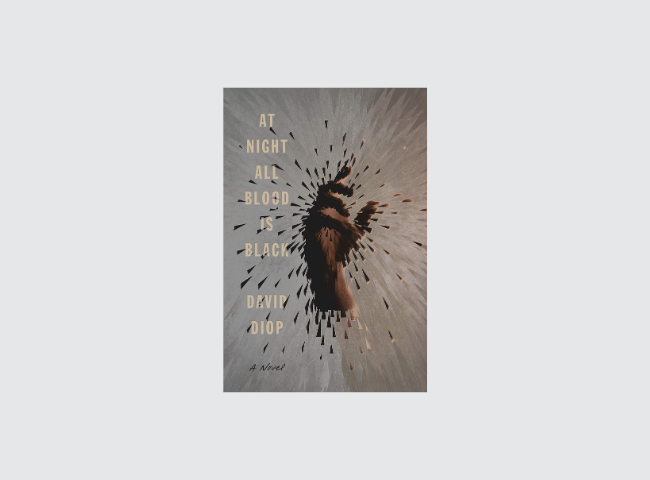
I
… I KNOW, I UNDERSTAND, I shouldn’t have done it. I, Alfa Ndiaye, son of the old, old man, I understand, I shouldn’t have. God’s truth, now I know. My thoughts belong to me alone, I can think what I want. But I won’t tell. The ones I might have told my secret thoughts to, my brothers-in-arms who will be left so disfigured, maimed, eviscerated, that God will be ashamed to see them show up in Paradise and the Devil will be happy to welcome them to Hell, will never know who I really am. The survivors won’t know a thing, my old father won’t know, and my mother, if she is still of this world, will never find out. The weight of shame will not be added to the weight of my death. They won’t imagine what I’ve thought, what I’ve done, the depths to which the war drove me. God’s truth, the family honor will be spared, the honor of appearances.
I know, I understand, I shouldn’t have. In the world before, I wouldn’t have dared, but in today’s world, God’s truth, I allow myself the unthinkable. No voice rises in my head to forbid me: my ancestors’ voices and my parents’ voices all extinguished themselves the minute I conceived of doing what, finally, I did. I know now, I swear to you that I understood it fully the moment I realized that I could think anything. It happened like that, all of a sudden without warning, it hit me brutally in the head, like a giant seed of war dropped from the metallic sky, the day Mademba Diop died.
Ah! Mademba Diop, my more-than-brother, took too long to die. It was very, very difficult, it wouldn’t end, from dawn into evening, his guts in the air, his insides outside, like a sheep that has been ritually dismembered after the sacrifice. Except Mademba was not yet dead, and already the insides of his body were outside. While the others hid in the gaping wounds in the earth we called trenches, I stayed close to Mademba, I lay pressed against him, my right hand in his left hand, staring at the cold blue sky crisscrossed with metal. Three times he asked me to finish him off, three times I refused. This was before, before I allowed myself to think anything I want. If I had been then what I’ve become today, I would have killed him the first time he asked, his head turned toward me, his left hand in my right.
God’s truth, if I’d already become then what I am now, I would have slaughtered him like a sacrificial sheep, out of friendship. But I thought of my old father, of my mother, of the inner voice that commands us all, and I couldn’t cut the barbed wire of his suffering. I was not humane with Mademba, my more-than-brother, my childhood friend. I let duty make my choice. I offered him only mistaken thoughts, thoughts commanded by duty, thoughts condoned by a respect for human law, and I was not human.
God’s truth, I let Mademba cry like a small child, the third time he begged me to finish him off, pissing himself, his right hand groping at the ground to gather his scattered guts, slimy as freshwater snakes. He said to me, “By the grace of God and of our marabout, if you are my brother, Alfa, if you are really who I think you are, slit my throat like a sacrificial sheep, don’t let the scavengers of death devour my body! Don’t abandon me to all that filth. Alfa Ndiaye … Alfa … I’m begging you … slit my throat!”
But precisely because he spoke to me of our great marabout, precisely so as not to disobey the laws of humanity, the laws of our ancestors, I was not humane and I let Mademba, my more-than-brother, my childhood friend, die with his eyes full of tears, his hand trembling, groping the muddy battlefield for his guts so he could stuff them back into his open belly.
Ah, Mademba Diop! Only after you were gone did I finally begin to think. Only with your death, at dusk, did I know, did I understand that I would no longer listen to the voice of duty, the voice that commands, the voice that leads the way. But it was too late.
Once you were dead, your hands finally immobile, finally at rest, finally released from their shameful suffering by your last breath, I thought only that I should not have waited. I understood, one breath too late, that I should have slit your throat as soon as you asked me to, while your eyes were still dry, your left hand clasped in mine. I shouldn’t have let you suffer like an old solitary lion, eaten alive by hyenas, its insides turned out. I let you plead with me for reasons that were corrupt, because of thoughts that arrived fully formed, too well dressed to be honest.
Ah, Mademba! How I’ve regretted not killing you on the morning of the battle, while you were still asking me nicely, as a friend, with a smile in your voice! To have slit your throat in that moment would have been the last good bit of fun I could have given you in your life, a way to stay friends for eternity. But instead of coming through for you, I let you die condemning me, bawling, drooling, screaming, shitting yourself like a feral child. In the name of who knows what human laws, I abandoned you to your miserable lot. Maybe to save my own soul, maybe to remain the person those who raised me hoped for me to be, before God and before man. But before you, Mademba, I was incapable of being a man. I let you curse me, my friend, you, my more-than-brother, I let you scream, blaspheme, because I did not yet know how to think for myself.
But as soon as you were dead, with a final groan, your guts exposed, my friend, my more-than-brother, as soon as you were dead, I knew, I understood that I should not have abandoned you.
I waited a bit, stretched out next to your remains, and stared at the night sky, deepest blue blue, crisscrossed by the sparkling trails of the last tracer bullets. And as soon as silence fell on the blood-soaked battlefield, I began to think. You were no more than a heap of dead meat.
I set about doing what you hadn’t managed to do all day because your hand was too unsteady. I neatly gathered your still-warm guts and deposited them into your belly, as if into a sacred vessel. In the twilight, I thought I saw you smile at me and I decided to take you home. In the cold of night, I took off my regulation trench coat and my shirt. I slid my shirt onto your body and tied the sleeves against your stomach, a very, very tight double knot that became stained with your black blood. I picked you up and brought you back to the trench. I held you in my arms like a child, my more-than-brother, my friend, and I walked and walked in the mud, in the crevices carved out by mortar shells, filled with bloodstained water, dispersing the rats that had left their burrows to feed on human flesh. And as I carried you in my arms, I began to think for myself, by asking your forgiveness. I knew, I understood too late what I should have done when you asked me, eyes dry, the way one asks a favor of a childhood friend, like a debt owed, without ceremony, sweetly. Forgive me.
II
I WALKED FOR A LONG TIME through the fissures in the earth, carrying Mademba, heavy like a sleeping child, in my arms. An enemy target escaping notice under the light of the full moon, I arrived at the gaping hole that was our trench. Seen from a distance, our trench looked to me like the slightly parted lips of an immense woman’s sex. A woman, open, offering herself to war, to the bombshells, and to us, the soldiers. It was the first unmentionable thing I allowed myself to think. Before Mademba’s death, I would never have dared imagine such a thing, would never have thought of the trench as an outsized female organ ready to receive us, Mademba and me. The insides of the earth were outside, the insides of my mind were outside, and I knew, I understood that I could think anything I wanted to, on the condition that the others knew nothing of it. So I locked my thoughts back in my head after observing them from up close. Strange.
The others welcomed me to the belly of the earth like a hero. I’d walked beneath the bright moon, my arms around Mademba, without seeing that a long ribbon of his intestine had escaped from my shirt knotted around his waist. When they saw the human disaster I was carrying in my arms, they said I was courageous and strong. They said they would not have been able to do it. That they might have abandoned Mademba Diop to the rats, that they wouldn’t have dared to neatly gather his guts into the sacred vessel of his body. They said that they would not have carried him such a long distance beneath such a bright moon in sight of, and with the knowledge of, the enemy. They said I deserved a medal, that I would be given the Croix de Guerre, that my family would be proud of me, that Mademba, looking down on me from the sky, would be proud of me. Even our General Mangin would be proud of me. And yet I was thinking that I didn’t care about the medal, though no one would ever know this. Like no one would ever know that Mademba had begged me three times to finish him, that I had remained deaf to his three supplications, that I had been inhuman by obeying duty’s voice. But I was now free to listen no longer, to no longer obey the voices that command us not to be human when we must.
III
IN THE TRENCH, I lived like the others, I drank, I ate like the others. Sometimes I sang, like the others. I sing off-key and everyone laughed when I sang. They would say, “You Ndiayes, you can’t sing.” They made fun of me, a little, but they respected me. They didn’t know what I thought of them. I found them foolish, I found them idiotic, because they didn’t think about anything. Soldiers, black or white, who always say “yes.” When commanded to leave the shelter of their trench to attack the enemy, defenseless, it’s “yes.” When told to play the savage, to scare off the enemy, it’s “yes.” The captain told them that the enemy was afraid of savage Negroes, cannibals, Zulus, and they laughed. They’re content if the enemy on the other side is afraid of them. They’re content to forget their own fear. So when they leap from the trench, their rifles in their left hands and their machetes in their right, hurling themselves out of the earth’s belly, they do so with eyes like madmen. The captain has told them they are great warriors, so they love to get themselves killed while singing, so their madness becomes a competition. A Diop would not want it said of him that he is less courageous than a Ndiaye, and so the minute the sound of Captain Armand’s whistle commands him, he leaps up from his hole and screams like a savage. Same rivalry between the Keïtas and the Soumarés. Same thing between the Diallos and the Fayes, the Kanes and the Thiounes, the Dianés, the Kouroumas, the Bèyes, the Fakolis, the Salls, the Diengs, the Secks, the Kas, the Cissés, the Ndours, the Tourés, the Camaras, the Bas, the Falls, the Coulibalys, the Sonkhos, the Sys, the Cissokhos, the Dramés, the Traorés. They will all die without thinking because Captain Armand has said to them, “You, the Chocolats of black Africa, are naturally the bravest of the brave. France admires you and is grateful. The papers talk only of your exploits!” So they love to sprint onto the battlefield to be beautifully massacred while screaming like madmen, regulation rifle in the left hand and savage machete in the right.
But I, Alfa Ndiaye, I understand the true meaning of the captain’s words. No one knows what I think. I am free to think whatever I want. And what I think is that people don’t want me to think. The unthinkable is what is hidden behind the captain’s words. The captain’s France needs for us to play the savage when it suits them. They need for us to be savage because the enemy is afraid of our machetes. I know, I understand, it’s no more complicated than that. The captain’s France needs our savagery, and because we are obedient, myself and the others, we play the savage. We slash the enemy’s flesh, we maim, we decapitate, we disembowel. The only difference between my friends the Toucouleurs and the Sérères, the Bambaras and the Malinkés, the Soussous, the Haoussas, the Mossis, the Markas, the Soninkés, the Senoufos, the Bobos, and the other Wolofs, the only difference between them and me is that I became savage intentionally. They play a role only when they crawl out from the earth, but I play a role only with them, inside our sheltering trench. In their company, I laughed and I even sang off-key, but they respected me.
As soon as I left the trench sprinting, as soon as the trench birthed me and I began to scream, the enemy was in trouble. I never retreated when a retreat was called, I would return to the trench in my own time. The captain knew this, he let it happen, amazed when I would return each time alive, smiling. He let it happen, even when I returned late, because I would bring trophies back to the trench. I brought back the spoils of a savage war. I brought back, at the end of every battle, in the dark night or in the night bathed in moonlight and blood, an enemy rifle, along with the hand that went with it. The hand that had carried it, the hand that had gripped it, the hand that had cleaned it, discharged it, and reloaded it. So when the retreat was sounded, the captain and my trench-mates who had come back to bury themselves alive in the damp protection of our trench asked themselves questions. First: “Will Alfa Ndiaye come back to us alive?” Second: “Will Alfa Ndiaye come back with an enemy rifle and the hand that carried it?” And I always came back to the earth’s womb after the others, sometimes under enemy fire, whether it was windy or raining or snowing, as the captain said. And I always brought an enemy rifle and the hand that had carried it, gripped it, cleaned it, greased it, the hand that had loaded it, discharged it, and reloaded it. And the captain and my surviving trench-mates who always asked themselves those two questions on the evenings of attacks were pleased when they heard shots and enemy cries. They would say to each other, “Well, Alfa Ndiaye must be on his way home. But will he bring back a rifle and the severed hand that goes with it?” A rifle, a hand.
Home with my trophies, I saw that they were very, very pleased with me. They saved food for me, they saved bits of tobacco. They were truly so pleased to see me come back that they never asked me how I did it, how I captured the enemy rifle and the severed hand. They were so pleased that I’d come back because they liked me. I had become their totem. The hands confirmed for them that they were still alive for one more day. Nor did they ever ask me what I had done with the rest of the body. How I had captured the enemy, that didn’t interest them. Nor how I’d cut off the hand. What interested them was the result, the savagery. And they laughed with me, thinking that for some time now the enemies on the other side must be very, very afraid, imagining their own hands being severed. And still, my captain and my trench-mates didn’t know how I captured them and what I did with the rest of their bodies after. They couldn’t imagine even a fraction of a fraction of what I did to the bodies, they couldn’t imagine even a fraction of the fear felt by the enemies on the other side.
When I leave the belly of the earth, I am inhuman by choice, I become a little inhuman. Not because the captain commanded me to, but because I have thought it and willed it. When I leap, shrieking, from the earth’s womb, I do not intend to kill multiple enemies from the other side, but to kill just one, in my own way, calmly, deliberately, slowly. When I emerge from the earth, my rifle in my left hand and my machete in my right, I’m not concerned about my trench-mates. I don’t know them anymore. They fall around me, faces in the soil, one by one, and I run, I shoot, and I throw myself flat on my stomach. I run, I shoot, and I crawl under the barbed wire. While shooting, I might kill an enemy by accident, without really meaning to. I might. But what I want is to fight face-to-face. That’s why I run, shoot, throw myself on my stomach and crawl, to arrive as close as possible to the enemy on the other side. In sight of their trench, I slow to a crawl, then, little by little, I stop moving almost completely. I play dead. I wait, calmly, to capture one of them. I wait until one comes out of his hole. I wait for the evening cease-fire, the moment of relief, when the shooting stops.
One always comes out from a mortar-shell hole where he’s taken refuge until he can return to his trench close to dusk, when no one is shooting. Then, with my machete, I slash the backs of his knees. It’s easy, he thinks I’m dead. The enemy from the other side doesn’t see me, a corpse among corpses. Now, in his mind, I’ve come back from the dead to kill him. The enemy from the other side is so scared, he doesn’t make a sound when I slash the backs of his knees. He just crumples. So I disarm him, then I gag him. I tie his hands behind his back.
Sometimes it’s easy. Sometimes it’s more difficult. Some of them don’t give in. Some don’t want to believe that they’re going to die. Some resist. So I knock them out, silently, because I’m twenty years old and, as the captain says, a force of nature. Then I pick them up either by the sleeve of their uniform or by a boot, and I pull them very gently as I crawl into la terre à personne, “no-man’s-land,” as the captain says, between the two giant trenches, across the mortar holes, across the pools of blood. Whether it’s wind, rain, sleet, or snow, as the captain says, I wait for him to wake up, I wait patiently for the enemy from the other side to wake up if I’ve knocked him out. If I don’t have to knock him out, if the one I dragged from his mortar-shell hole has let me take him, believing he can outsmart me, I wait and catch my breath. I wait until we’re both calm. While waiting, I smile at him, in the light of the moon and the stars, so he doesn’t become too agitated. But when I smile at him, I can sense him wondering, “What does this savage want from me? Is he going to eat me? Is he going to rape me?” I am free to imagine what the enemy from the other side thinks because I know, I understand. Looking into the enemy’s blue eyes, I often see a panicked fear of death, of savagery, of rape, of cannibalism. I see in his eyes what he’s been told about me, and what he’s believed without ever seeing me. I think that in seeing me look at him, smiling, he’s telling himself that they didn’t lie to him, that with my teeth, white at night with or without a moon, I will devour him alive, or something even worse.
The terrible thing is when, once I’ve caught my breath, I undress the enemy from the other side. When I unbutton the top of his uniform, that’s when I see the enemy’s blue eyes mist up. That’s when I sense that he fears the worst. Whether he’s stoic or distraught, brave or cowardly, at the moment I unbutton the jacket of his uniform, then the shirt, to expose his belly, bright white in the moonlight or in the rain or in the softly falling snow, that’s when I catch the eyes of the enemy from the other side starting to dim. They’re all the same, the tall ones, the short ones, the fat ones, the brave ones, the cowardly ones, the proud ones, when they see me looking at their trembling white bellies, their eyes go dim. All the same.
Then I pull back a little and I think about Mademba Diop. And each time I hear him in my head begging me to slit his throat and I think that I was inhuman enough to let him beg me three times. What I didn’t do for my friend I can do for my enemy. Out of humanity.
When they see me reach for my machete, the blue eyes of the enemy from the other side extinguish themselves for good. The first time, the enemy kicked me and tried to run away. Since then, I make sure to bind the ankles of the enemy from the other side. And that’s why, as soon as I have my machete in my right hand, the enemy starts to squirm like a madman, as if he thinks he can escape. It’s impossible. The enemy from the other side must know that he can no longer escape, being so tightly bound, but still he hopes. I can read it in his blue eyes the way I read it in Mademba Diop’s black eyes, the hope that I might alleviate his suffering.
His white belly is exposed, it rises and falls in jerks. The enemy from the other side gasps and screams, now in stark silence because of the gag I’ve cinched around his mouth. He screams in stark silence when I take all the insides of his belly and put them outside in the rain, in the wind, in the snow, or in the bright moonlight. If at this moment his blue eyes don’t dim forever, then I lie down next to him, I turn his face toward mine and I watch him die a little, then I slit his throat, cleanly, humanely. At night, all blood is black.
BUY | Amazon
Copyright © 2018 by David Diop
Translation copyright © 2020 by Anna Moschovakis


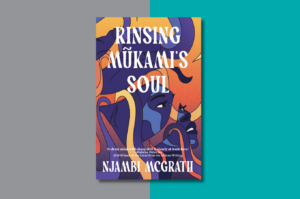
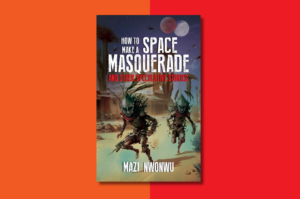
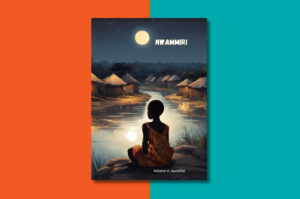

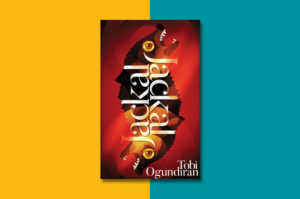
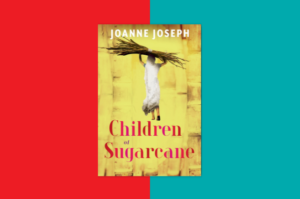

COMMENTS -
Reader Interactions